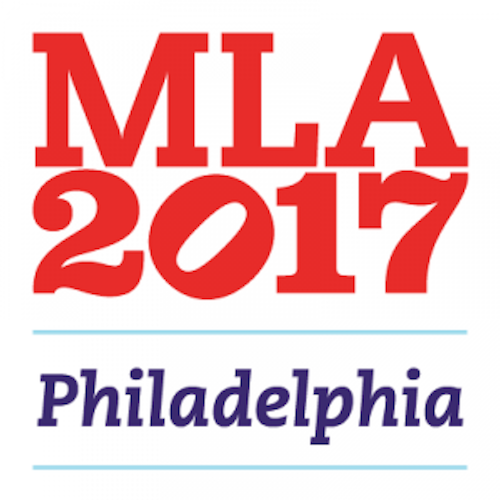At the Modern Language Association’s annual meeting in Philadelphia, on January 7, 2017, the Delegate Assembly voted against a resolution calling for the boycott of Israeli universities complicit in the….

At the Modern Language Association’s annual meeting in Philadelphia, on January 7, 2017, the Delegate Assembly voted against a resolution calling for the boycott of Israeli universities complicit in the denial of academic freedom for the Palestinian people. A resolution that would add racist insult to injury, by blaming the Palestinian Authority and Hamas, but not Israel, for the plight of Palestinian scholars, was tabled.
Resolution 2017-1 (the Anti-boycott resolution, proposed by Russell A. Berman and Martin B. Shichtman) reads:
“Whereas endorsing the Palestinian Campaign for the Academic and Cultural Boycott of Israel contradicts the MLA’s purpose to promote teaching and research on language and literature,
Whereas the boycott’s prohibition of the evaluation of work of individual Israeli scholars conflicts with Resolution 2002-1, which condemns boycotts against scholars,
Whereas endorsing the boycott could curtail debates with representatives of Israeli universities, such as faculty members, department chairs and deans, thereby blocking possible dialogue and general scholarly exchange,
Be it resolved that the MLA refrain from endorsing the boycott.”
101 voted in favor, and 93 opposed this resolution. Clearly, the 101 delegates are not concerned about present restrictions on dialogue and scholarly exchanges with Palestinian academics, fearing only about the privileges of “representatives of Israeli universities.”
The pro-boycott resolution, Resolution 2017-2, proposed by Rebecca Comay of the University of Toronto, and David Lloyd, of the US Campaign for an Academic and Cultural Boycott of Israel, reads:
“Whereas the MLA affirms: “When academic freedom is curtailed, higher education is compromised”;
Whereas the US materially supports Israel’s ongoing violations of human rights and international law;
Whereas these violations include the systematic denial of academic freedom and educational rights for Palestinian scholars and students;
Whereas Israeli universities are instrumental in perpetuating these violations;
Be it resolved that the MLA endorses Palestinian civil society’s call for the boycott of Israeli academic institutions; and
Be it further resolved that the MLA affirms the right of faculty and students everywhere to advocate for the boycott of Israeli academic institutions, without retaliation.”
The pro-BDS resolution was voted down, with 79 in favor, and 113 opposed. But what was even more egregious than the vote in favor of anti-boycott resolution was the following, Resolution 2017-3, which blames Hamas and the Palestinian Authority, but not Israel, for the restrictions on the academic freedom of the Palestinian people in the West Bank and Gaza Strip.
Resolution 2017-3, proposed by Agnes C. Mueller, reads:
“Whereas repeated attacks on the academic freedom of Palestinian scholars and students by Palestinian political organizations, including both the Palestinian Authority and Hamas, have been documented,
Whereas these attacks on academic freedom constrain scholarly pursuits in Palestinian universities,
Be it resolved that the MLA condemn attacks on academic freedom in Palestinian universities, whether they are perpetrated by the Palestinian Authority or by Hamas.”
In an interesting development presented as a “conciliatory move” following the defeat of the BDS resolution, the sponsors of Resolution 2017-3 proposed that it be tabled. The proposal to table the resolution passed, thus depriving many of the opportunity to expose who truly is behind the violations of academic freedom for Palestinians, namely Israel. Such a discussion is available on the BDS website, and reads, in part:
“Israel’s relentless and deliberate attack on Palestinian education, which some have recently termed scholasticide, goes back to the 1948 Nakba, when Israel plundered and/or destroyed tens of thousands of Palestinian books.
During the first Palestinian Intifada (1987-1993), Israel shut down all Palestinian universities, some for several years, all 1,194 Palestinian schools and eventually kindergartens, prompting Palestinians to build an “illegal network” of underground schools.
Palestinian scholars and students are methodically denied their basic rights, including academic freedom, and are often subjected to imprisonment, denial of freedom of movement, even violent attacks.
In its assault on Gaza in 2014, Israel targeted at least 153 schools, including 90 run by the UN, and the largest university, according to UNICEF.
Israeli universities have not only remained silent, but in many cases have directly supported or justified the state’s ongoing suppression of Palestinian education.”
At the time of this writing, there is talk of a mass walkout from the MLA, a collective letter withdrawing membership, even a boycott of the MLA. The walkout would not be immediate, however, as the resolutions must first be put to a vote of the entire MLA membership, numbering close to 25,000 academics.
